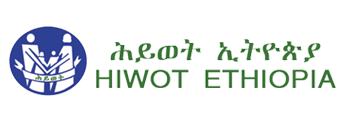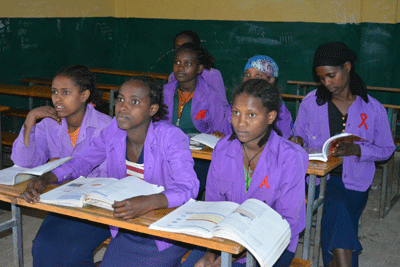To address early marriage as well as early and closely spaced pregnancies in the Amhara region, Hiwot Ethiopia has been implementing a community based adolescent and youth reproductive health program in four woredas (districts) of the North Shewa Zone since 2002 with the support of the German Foundation for World Population and the David & Lucile Packard Foundation. Currently the organization has been implementing such project with the support of other Amplifychange and others.
The overall objective of the program is to delay marriage and promote birth spacing among young peoples and newly married couples. The program is based on the lessons acquired from a similar project model known as PRACHAR, which is implemented in Bihar, India. PRACHAR is a community based program which uses multi-disciplinary youth focused age and life stage appropriate communication methods. Hiwot has adopted selected components of this model and employed a three pronged objectives:
- Empowering girls and young couples with SRH/FP information
- Improving access to SRH/FP services
- Fostering an enabling environment
Major achievements
The youth friendly health centers in close collaboration of public and private health facilities play a significant role in providing quality reproductive health information and services for young people.
Created strong referral arrangement with private and public health care facilities to provide youth friendly referral services for young people on SRH/FP/HIV prevention, counseling and testing and other services
In collaboration with health facilities, youth clubs, trained health extension workers and house to house facilitators, provided quality and youth friendly sexual reproductive health information and services for young people.
Young people living in the program areas were attended an age segmented (10-14, 15-19 & 20-24) peer group discussions and created better understanding and behaviors on sexual and reproductive health issues, including family planning and factors that expose young people to HIV and STIs
Safe houses created near to high schools in the woredas supported girls to attend the school and eliminating the daily trek to school. The safe home program provided support and companionship for girls, including reading rooms and educational materials. Due to the safe house support, we have seen a dramatic reduction in dropouts.
Community groups, religious leaders, government representatives, school community groups attended on outreach programs and received adequate information on girls education and barriers of girls education.
Youth clubs capacities improved so as to reach their peers in quality youth friendly information and services on SRH/FP/HIV prevention, counseling and testing and other.
Community action teams were established and strengthened which are comprised from religious fathers, government stakeholder and school representatives to fight against child marriage promotion of girls education.
Sanitary pad support: Girls were absent during menstrual cycle from the regular classes, this is serious problem in the country. In order to help girls to attend their education and reduce absenteeism, Hiwot has been provided training on skills of locally made sanitary pad preparation , management of menstrual cycles and Sexual Reproductive Health information for girls living in the safe home and outside of the same home. As a result of such intervention girls school attendance increased

